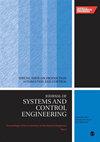无人水面车辆平台自主对接与锁钩控制实验研究
IF 1.4
4区 计算机科学
Q4 AUTOMATION & CONTROL SYSTEMS
Proceedings of the Institution of Mechanical Engineers, Part I: Journal of Systems and Control Engineering
Pub Date : 2023-09-19
DOI:10.1177/09596518231198186
引用次数: 0
摘要
设计合适的自主对接控制器,保证电动控制钩与被动船舶的迭代对接,是多水面无人导航平台自主对接与锁钩的挑战。目前无人地面平台对接控制方案需要设计一种自动跟踪生成的轨迹和视觉制导对接系统,能够检测钩锁动作后的对接状态,确保对接成功。然而,大多数无人地面平台的对接控制设计更多地关注首次成功率,而对对接过程中复杂智能的对接设备或环境干扰导致的对接失败关注较少。提出了一种两无人水面平台自主对接与锁钩控制策略。它在任务要求下引导主动容器到被动容器的一侧,触发视觉对接控制算法,完成两个关节的机械连接。该方法采用迭代检测机制,提高了主动和被动船舶的自动勾锁能力。室内水池和室外湖泊实验表明,即使存在波浪扰动,该方法也能成功实现自动迭代对接和锁钩,验证了该方法的有效性。本文章由计算机程序翻译,如有差异,请以英文原文为准。
Experimental study on autonomous docking and hook-locking control for unmanned surface vehicle platforms
The challenge in autonomous docking and hook locking of multiple unmanned surface navigation platforms is to design an appropriate autonomous docking controller and ensure that the electric control hook can iteratively dock with the passive vessel. The current docking control solution for unmanned surface platforms needs to design an automatic tracking–generated trajectory and visual guidance docking system, capable of detecting the connection status after the hook-lock action to ensure a successful connection. However, most of the docking control designs for unmanned surface platforms pay more attention to the first-time success rate but pay less attention to the failures caused by complex and intelligent docking devices or environmental interference during docking. This article proposes a control strategy for autonomous docking and hook locking of two unmanned surface platforms. It guides the active vessel to the side of the passive vessel under the task requirements and triggers the visual docking control algorithm to complete the mechanical connection of the two joints. This method employs an iterative detection mechanism to improve the automatic hook and lock capability of both the active and passive vessels. The indoor pool and outdoor lake experiments demonstrate that the proposed method can successfully perform automatic iterative docking and hook locking, even in the presence of wave disturbance, showcasing the effectiveness of the proposed method.
求助全文
通过发布文献求助,成功后即可免费获取论文全文。
去求助
来源期刊

CiteScore
3.50
自引率
18.80%
发文量
99
审稿时长
4.2 months
期刊介绍:
Systems and control studies provide a unifying framework for a wide range of engineering disciplines and industrial applications. The Journal of Systems and Control Engineering refleSystems and control studies provide a unifying framework for a wide range of engineering disciplines and industrial applications. The Journal of Systems and Control Engineering reflects this diversity by giving prominence to experimental application and industrial studies.
"It is clear from the feedback we receive that the Journal is now recognised as one of the leaders in its field. We are particularly interested in highlighting experimental applications and industrial studies, but also new theoretical developments which are likely to provide the foundation for future applications. In 2009, we launched a new Series of "Forward Look" papers written by leading researchers and practitioners. These short articles are intended to be provocative and help to set the agenda for future developments. We continue to strive for fast decision times and minimum delays in the production processes." Professor Cliff Burrows - University of Bath, UK
This journal is a member of the Committee on Publication Ethics (COPE).cts this diversity by giving prominence to experimental application and industrial studies.
 求助内容:
求助内容: 应助结果提醒方式:
应助结果提醒方式:


